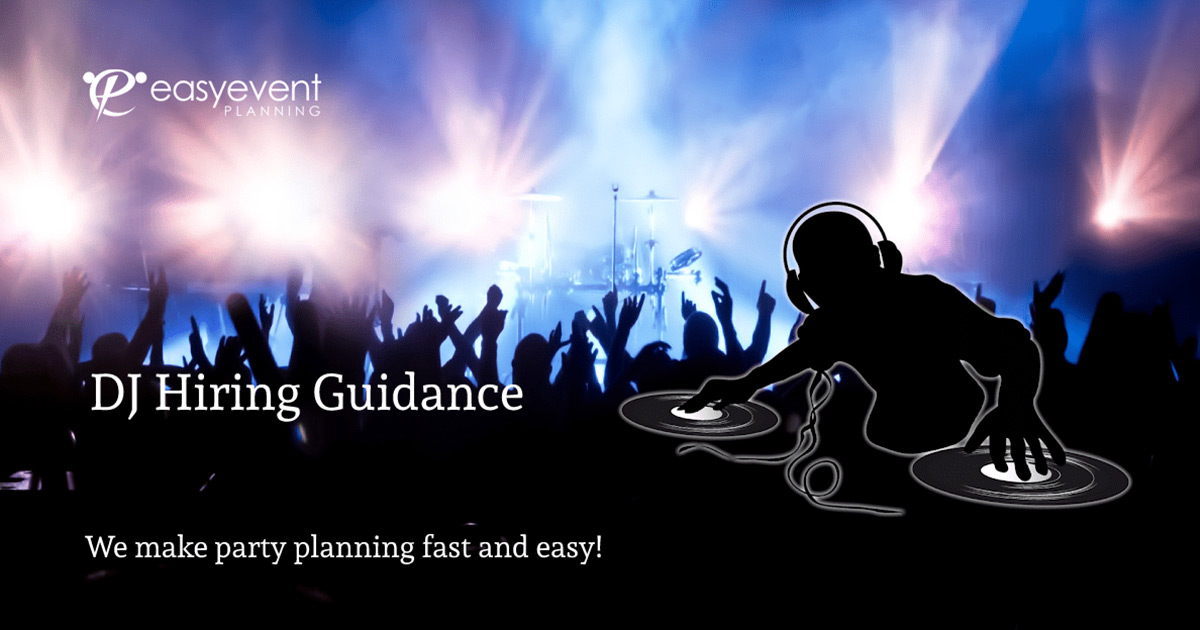Updated on: Nov 11, 2024
Hiring a DJ is crucial for any party you are throwing (anniversary, engagement, bar bat mitzvah, company party, holiday, prom, quinceanera, or a wedding) and you don’t want to get stuck with someone inexperienced because your event may suffer. Here are some DJ entertainment tips so that you can find the DJ that will make your party a lively affair.
DJ Hiring Basics
1. What does DJ mean?
The term DJ is short for Disc Jockey, referring to the time period where DJ's primarily played vinyl records.
2. What does a DJ do?
A DJ is someone hired to play recorded music at any event for an audience. This usually involves them lining up the beat of certain music choices so the rhythm and tempo do not clash when played close together. DJ's are also responsible for the audio, transitions, and beat of the music they are playing. They often bring a lot of energy and fun to an event, and sometimes will even take song requests.
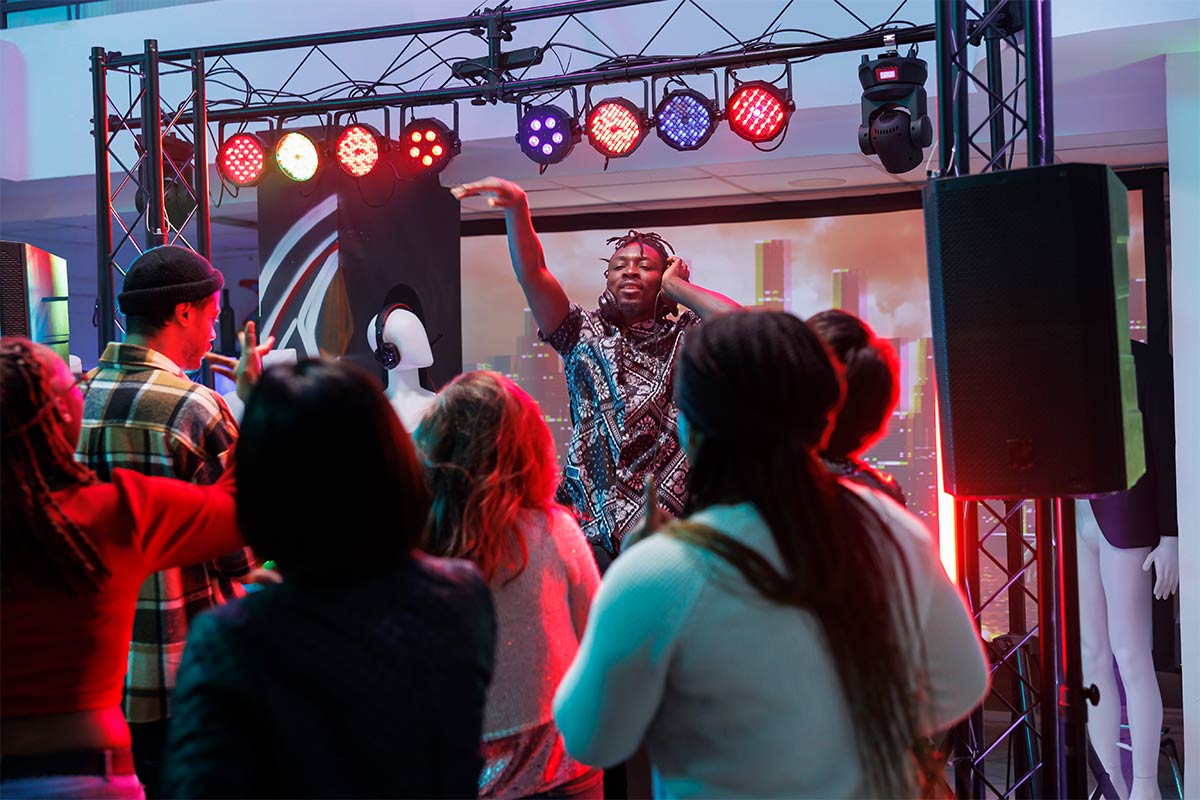
3. Rates for DJ services
Rates differ based on a DJ’s abilities, talents, services, equipment, music knowledge, and personality. The rates vary considerably; you can expect prices from $350.00 anywhere to over $5,000.00, averaging about $1,200.00 for four hours of work. The lowest price is often not the best choice, especially if you plan a noteworthy event like a wedding. For nearly all weddings, brides regret not spending a little more time and money on entertainment. Keeping guests entertained should be a priority for planning an event.
But, because of all of the other needs for the money, the DJ is usually where some funds can be “cut” to fit a certain budget. A full-service disc jockey will spend between 12 and 30 hours preparing for your special event. If you think that you are paying solely for the four hours they're performing on stage, then you are mistaken.
In the end, there are many aspects of being a DJ that goes overlooked, such as consulting, preparation, setup & teardown, and music purchasing/editing. All of these are vital to make sure your party goes off without a hitch.
4. Check for a Music Database
A music database is a list of the genres, albums, and songs that a DJ has at his or her disposal. Many DJs forgo these lists because they might send customers away if they don’t have an obscure band or song that potential clients may like. But remember, you are not shopping for the obscure, you are shopping for a competent DJ who has the ability to play different types of music for your audience.
If they do have a music database, look it over and, if you are pleased with the range and selection of songs, then you can begin to talk about rates. You can also see if the DJ is willing to expand their list a little to include a specific song or artist that means a lot to you.

5. Personality Tips
Personality in a DJ is extremely valuable. If you don’t like the person with whom you are working, then there are a multitude of problems that can arise. But on top of that, if you don’t like them, then your guests will most likely agree with you. The best choice here is to go with who feels best. But, often the best DJs are open with what they can do for you as the customer.
6. Right for the Job
There are DJs for every type of event. If you plan something specific or want to plan for any occasion, ask your DJ if they have had any experience with your event type. This will often help you find the right person for the job. It's important to choose the right person for the job since the DJ can create a lively environment for the event you're hosting. And if the DJ doesn't have the experience, then the entertainment for your guests will not reach expectations. You may also want to consider asking questions regarding social distance events.
7. Dance Floor DJ
The most important job of a DJ isn’t just to play appropriate music. It’s to get the guests up and to dance and to enjoy themselves (even if your guests don’t want to). The DJ needs extensive musical knowledge to ensure his/her performance is in the event's mood.
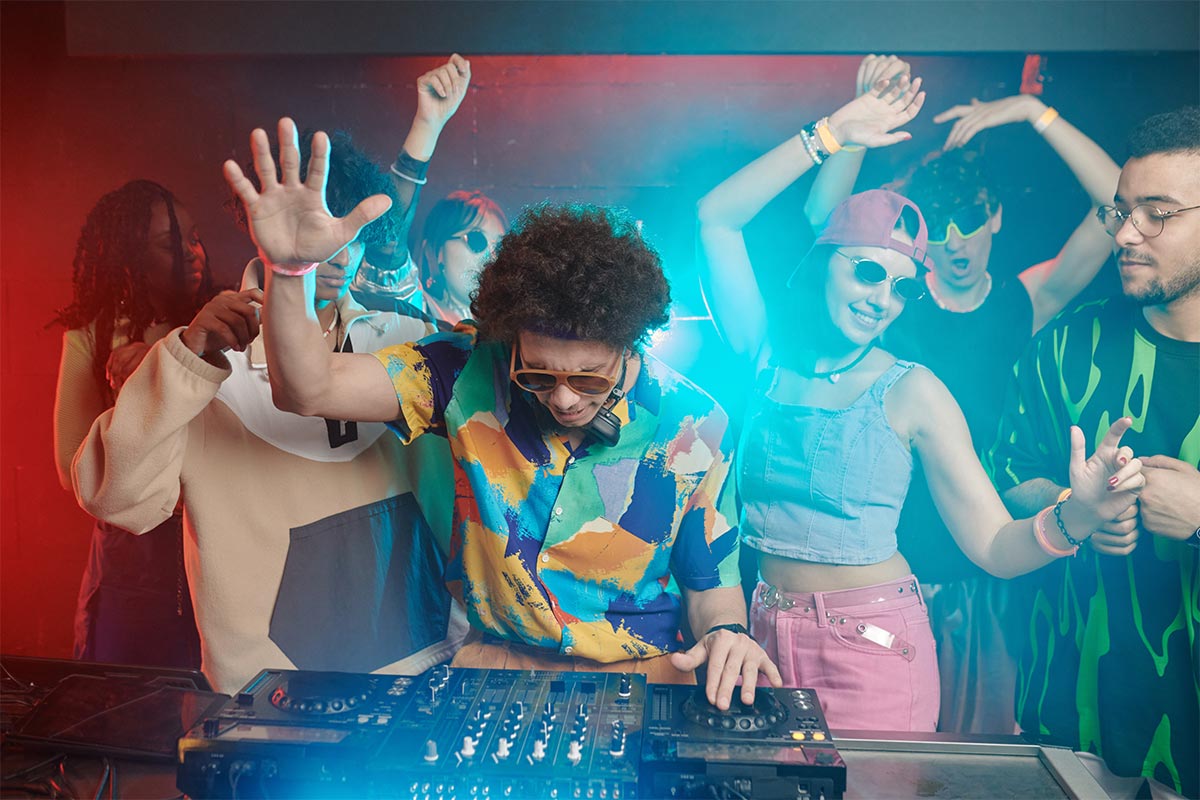
Equipment to Look for When Hiring a DJ
8. Turntables
These are the number one items for disc jockeys in your city. Whether they’re acting as reception musicians or ceremony musicians, wedding DJs will provide the liveliest wedding ceremony music for you with this equipment. The big question for DJs in this day and age is whether to use vinyl, CDs, or, most likely, all electronic media. If that question is important to you as well, you should look at the type of turntable(s) your professional has.
To this day, nothing sounds better than an old vinyl record, but they are things of the past. It’s cheaper and less bulky (and more common) to carry around just a laptop and some small equipment, but nothing scratches like an old record. Depending on whether you want scratching or not, you should look at the arm of the turntable. A straight arm is better for scratching but can also quickly ruin a record because of that. If you want better sound quality, look for S-shaped arms, which provide better rhythm. Many DJs now, however, will prefer to use electronic turntables and controllers.
9. Mixers
Size isn’t everything when it comes to this piece of equipment. While a large mix board is impressive, it doesn’t necessarily mean that your DJ will be the best. They may be so busy trying to work all the knobs and levers that they won’t actually give you a good show. If that’s the case, you would probably wish that you had hired live bands or wedding bands instead.
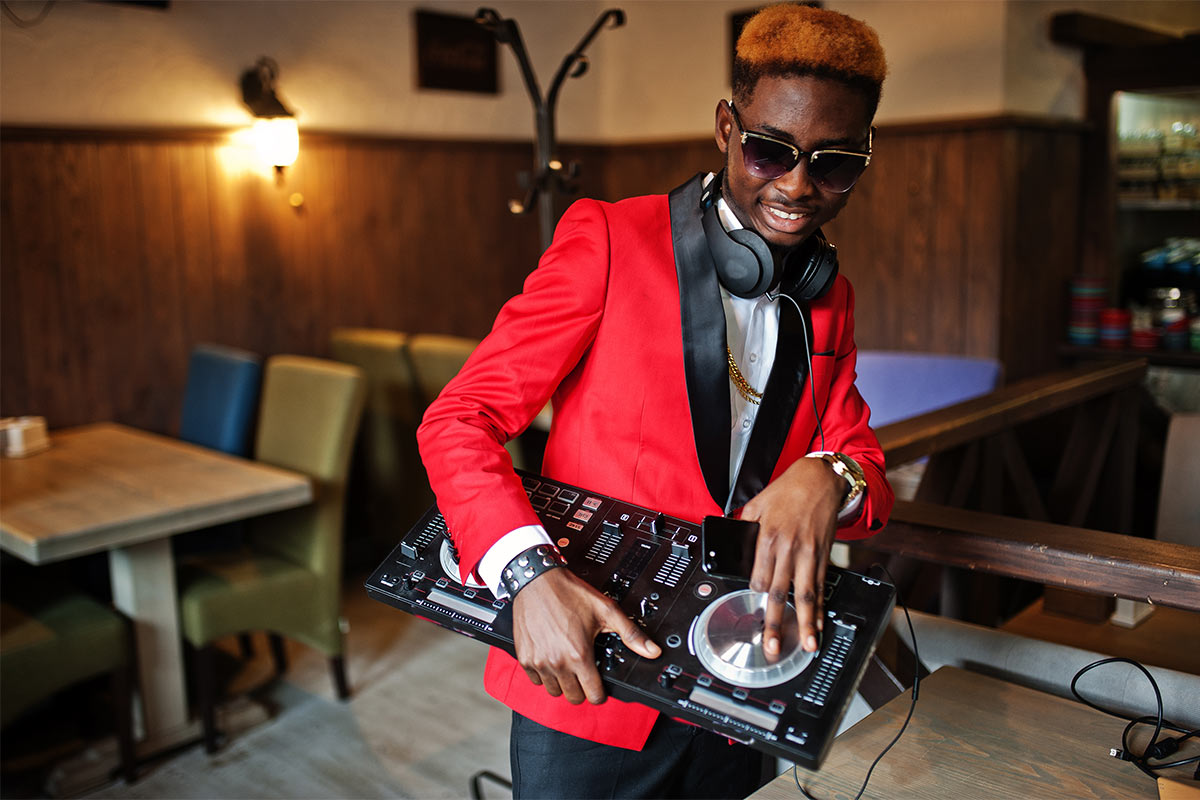
However, as long as the DJ knows how to use everything, they can provide a great show for your party or wedding. Look for ones that have a good combination of faders, EQ knobs, kill switches, and two or three channels. In turn, they have what they need without an excess of equipment that could hinder the experience.
10. Software
With more and more music professionals using digital measures, there is a variety of software that acts as a full set of equipment. Some software to look for are Ableton, Serato, Traktor and VirtualDJ.
Checking Your Disc Jockey for Professionalism
11. Rely on Recommendations/References
Professionalism is so important for a DJ. So, use your network of co-workers, friends, and family to try and find a reputable DJ. Ask them any questions you may have, and they will provide you with first-hand knowledge. However, you can also ask for referrals from the DJ’s previous clients to see if the DJ met their needs. If the DJ is willing to give you a list of references, make sure you take the time to call the people on this list. Ask about the DJ’s work ethic and if they had any issues.
12. Are They Part Of Any Professional Organizations?
You want to be able to distinguish if the DJ is a professional or amateur. If they are involved with a professional organization, they may be more credible. Also, they may have more years of experience. Of course, you will need to ask the disc jockey to determine if these claims are accurate. Usually, professional DJs should understand how to take charge, engage with guests appropriately, and always represent their organization respectively.
13. They Should Use Professional Equipment
The use of professional equipment is an enormous factor when it comes to DJs. If they do not show you pictures of their equipment, set up a time to meet with them so you can listen to the equipment and see their setup. Many home stereo equipment pieces do not work well in different room conditions, so ensure the DJ can verify his equipment is professional grade.
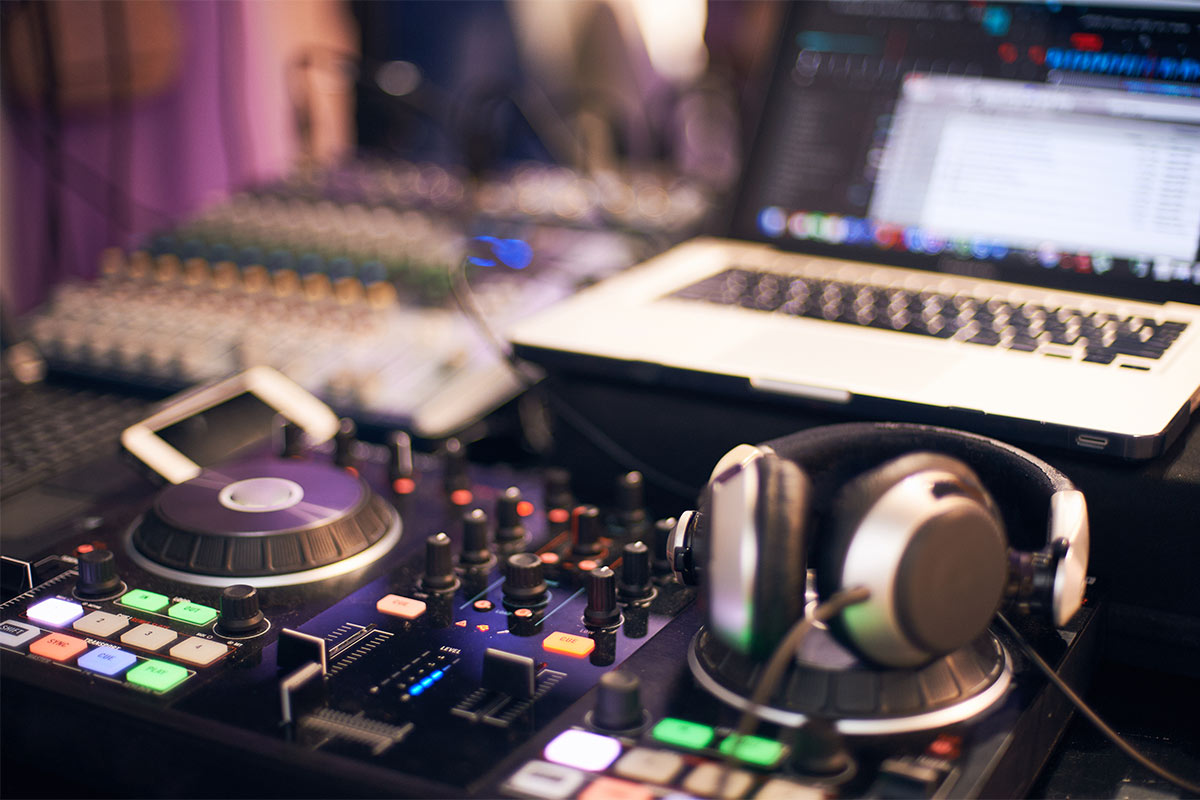
14. What Documents Does The DJ Use To Acquire Your Business?
The DJ should show you several documents if they are prepared for the interview. If the DJ has a planner, this hints that they are professional, organized, and capable of handling the event. They should also have a sample copy of the contract to look over, as well as pricing information.
15. Make Sure You Have a Contract for their services
It is crucial to sign a contract with the DJ. This will cover all of the information needed before, day of, and after the wedding. Make sure to ask the DJ if they include a contract. This document should have the date, place, and time of the event and other key details.
DJ Hiring Guidance: Conclusion
Take your time when deciding on a DJ to make sure you find the right fit for your event. Each DJ has their own style, personality, and specialties, so get to know them to hire a DJ that mixes well with you and your guests. Even with all these tips and different aspects to focus on that may be stressful, entertainment is meant to be fun. Enjoy the process and avoid overwhelming yourself with the decision!
Written by Stefanie Shimansky, Brittney Casad and Jared Knowlton; Contributors: Becky Smith and Chris Legere
